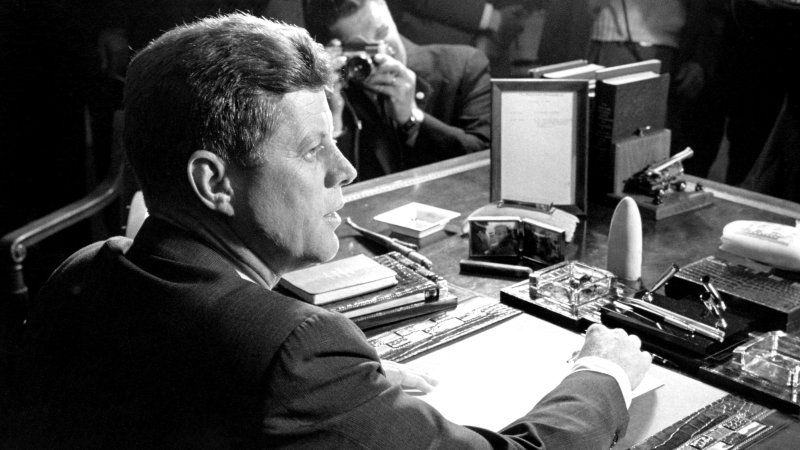President John F. Kennedy is seen in this October 23, 1962 file photo after signing a proclamation formally putting into effect the U.S. arms quarantine against Cuba. (UPI/File) |
License Photo
HAVANA, Nov. 20 (UPI) -- The U.S. embargo of Cuba should not be weakened in response to recent market reforms in the island, a key Florida congresswoman said.
"The sanctions on the regime must remain in place and, in fact, should be strengthened, and not be altered," said Rep. Ileana Ros-Lehtinen, R-Fla., who chairs the House Foreign Relations Committee.
"Responsible nations must not buy into the facade the dictatorship is trying to create by announcing 'reforms' while, in reality, it's tightening its grip on its people," she said in an email.
The New York Times reported Tuesday Cuba's recent legalization of hundreds of thousands of small businesses is being accepted by some in the United States as a sign it is time to loosen the restrictions of the 50-year-old Cuban embargo.
"Maintaining this embargo, maintaining this hostility, all it does is strengthen and embolden the hard-liners. What we should be doing is helping the reformers," Carlos Saladrigas, co-chairman of the Cuba Study Group in Washington told the Times.
While Cuba has made incremental, if debatable policy improvements, President Barack Obama loosened travel and remittances restrictions for Cuban Americans in 2009.
He cannot lift the embargo without Cuba committing itself to democratic reforms, as spelled out in the 1992 Cuban Democracy Act and the 1996 Helms-Burton Act, which mandate the embargo stays until a democratically elected government is in place in Havana.
But he can make a few adjustments, loosening travel and business restrictions further, the Times said.
For example, U.S. medical supplies are allowed to go to Cuba, but many companies refuse to send supplies because the law requires them to send a representative to the island to make sure the medicine is not used for making weapons.
"The Treasury Department is asking me, in a children's hospital, if I use, for example, catheters for military uses -- chemical, nuclear or biological," Dr. Eugenio Selman, director of Havana's William Soler Pediatric Cardiology Center, said.










